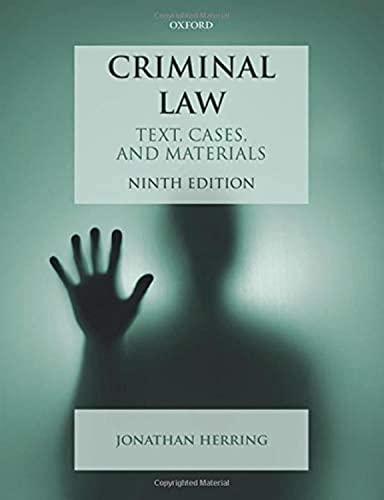Question
Compare and contrast the historical experiences, legal cases, and/or personalities involving African-Americans and Latinos. How are these experiences similar? How are they different? (CAN NOT
Compare and contrast the historical experiences, legal cases, and/or personalities involving African-Americans and Latinos. How are these experiences similar? How are they different? (CAN NOT INCLUDE THE CASES OF BROWN VS. BOARD OF EDUCATION OR MENDEZ VS. WESTMINSTER)use references belowhttps://www.mediafire.com/file/jxsgwdoysi5v9wd/Latinos+have+many+skin+tones.pdf/filehttps://wapo.st/30m85UYhttps://pewrsr.ch/3SKjMOUhttps://aspira.org/about-us/aspiras-legal-landmark-cases/https://www.nytimes.com/interactive/2020/07/03/us/george-floyd-protests-crowd-size.html

Step by Step Solution
There are 3 Steps involved in it
Step: 1

Get Instant Access to Expert-Tailored Solutions
See step-by-step solutions with expert insights and AI powered tools for academic success
Step: 2

Step: 3

Ace Your Homework with AI
Get the answers you need in no time with our AI-driven, step-by-step assistance
Get Started


